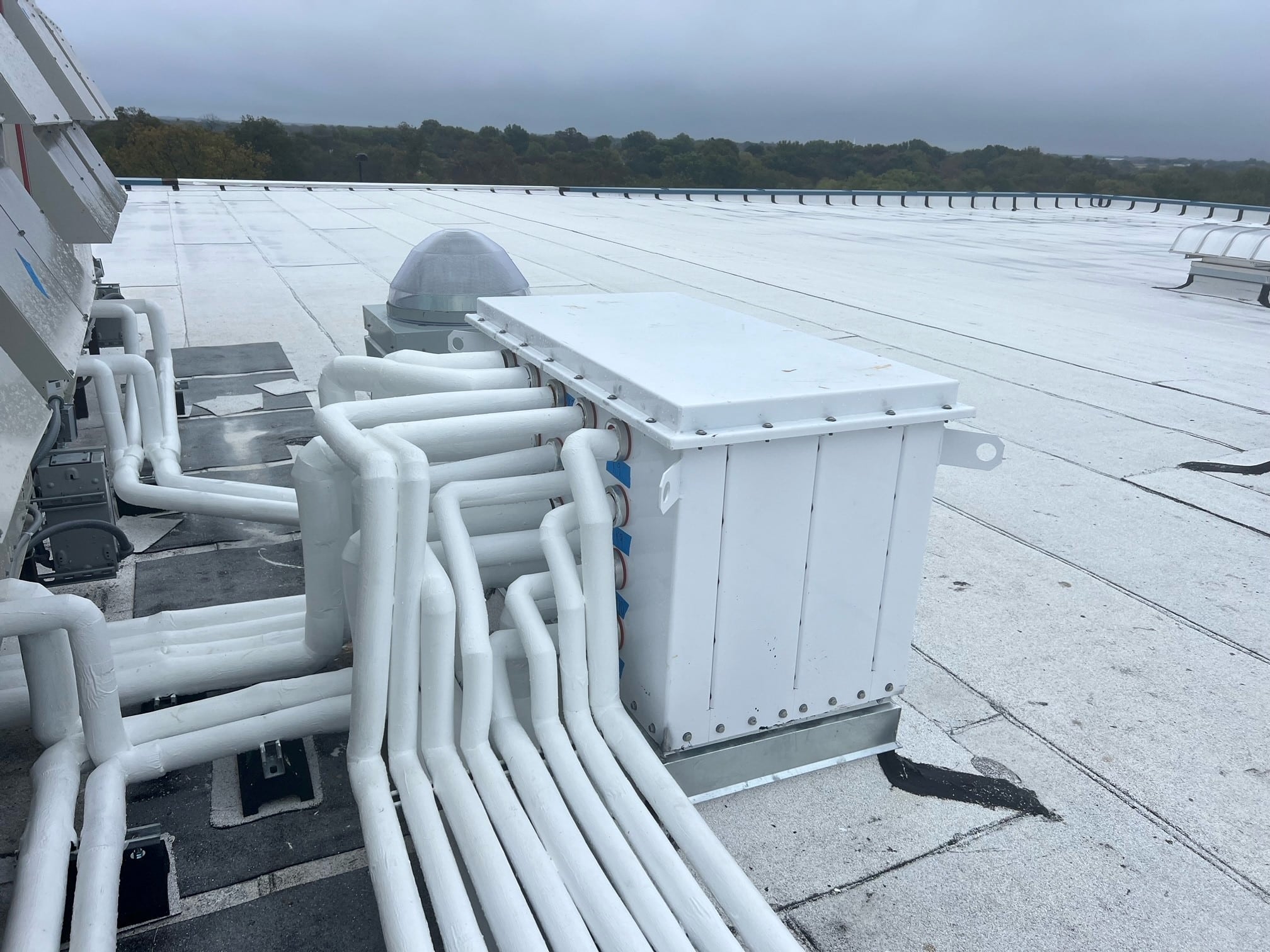
For years, penetration protection has lived in the shadows of roofing design conversations. While roofing systems have evolved — from single-ply membranes to layered insulation and high-performance assemblies — the way we handle roof and wall penetrations has remained surprisingly… limited.
And yet, those penetrations are often the most vulnerable part of the building envelope.
Where the Risk Lives
Let’s be honest: penetrations are often the source of the biggest problems.
They’re where:
Every project has them. Pipes, ducts, cable trays, exhaust vents, mechanical systems — all creating intentional openings in what should be a continuous, watertight, code-compliant roof or wall assembly.
Across many projects, handling penetrations comes last — not out of neglect, but because of how building timelines and responsibilities typically play out. It’s a shared industry challenge — and one that can lead to piecemeal or field-fabricated solutions that weren’t designed for the demands of the system. That’s why it pays to give penetrations thoughtful consideration early on — and where RPH can support your team with a streamlined plan and specification guidance from the start.
At RPH, we believe it's time to shift the narrative.
Why Penetration Protection Needs to Evolve
We’ve engineered solutions for a wide range of environments — from Commercial Buildings to Mission-Critical Facilities like data centers, hospitals, and public safety buildings, as well as Advanced Facilities such as semiconductor plants, life science labs, food & beverage process plants, and advanced R&D manufacturing sites.
And here’s what we’ve learned:
A roof is only as good as its weakest penetration.
If that part fails, the entire system is compromised — not just from a leak, but from a performance, safety, and lifecycle cost standpoint.
That’s why our approach goes beyond sealing the gap. We focus on integrated, tested, and certified roof penetration protection systems that work with the rest of your roofing assembly — not against it.
A Final Thought: Don’t Wait Until the End
If you’re in pre-design or early specification stages, now is the time to think about your penetrations — not just where they’ll go, but how you’ll protect them.
The weakest point in the envelope doesn’t have to be weak at all — not when it’s designed, tested, and built to perform.
At RPH, we work directly with architects, engineers, and contractors to ensure every opening is covered — strategically, securely, and in compliance with the demands of modern construction.
Because real protection doesn’t stop at the membrane.
It continues through every penetration.